Exodus 2: 1 – 10; Mark 10: 13 – 16; Mark 12: 30 – 31, Jill A. Kirchner-Rose, MDIV, DMIN –
We begin a new sermon series entitled, “Who Is My Neighbor?” Jesus commands us to love our neighbors as ourselves. Throughout history, no one questioned that love for one’s neighbor is a necessary part of holy life. However, people were not always sure who counted as their neighbor. “Who’s my neighbor?” has been one of the most troubling ethical questions of all time. The last 2 weeks, we heard about the Ninevites as neighbors. The Ninevites were the enemies of the Jewish people. They did horrible, terrible things. The Ninevites devasted Jewish cities and hurt the Jewish people. There was no atrocity that they did commit; no crime they did not revel in. Jonah was shocked, horrified to learn that even those Ninevites, the enemies were considered neighbors.
Who else are considered neighbors? On this World Communion Sunday, we celebrate children around the world as neighbors. Next week, for Pet Blessing Sunday, animals as neighbors. The following week, Art Show Sunday, artists (even artists who offend) as neighbors. On All Saints Day, we will celebrate ancestors as neighbors.
Last week, I participated in a zoom conference entitled, “Parenting Forward,” where we learned ways to instill a progressive faith and progressive values in our young people. One of the presenters was Julie Parker, a biblical studies professor at The General Theological Seminary in New York City. Parker is a pioneering scholar in the field of childist (not childish) biblical interpretation. Childist means “child-centered.” Scholars are starting to look at children of the Bible the way feminist scholars have been looking at the women of the Bible. Before the 1970s, the role of women in the Bible was largely ignored. Now, we see that women play a significant role in scripture. The same is happening with children. Before 2013, the role of children in the Bible was largely ignored. But now we see the key roles that children play in scripture. The power of the Bible is not in the text, but the power of the Bible is in the interpretation.
Take today’s scripture passage from Exodus 2. A story that I believe lifts up Miriam, Moses’ sister, as the heroine. Pharaoh commands that all the Hebrews boys be killed. The Hebrews were slaves and Pharaoh worries about a slave uprising. Moses’ mother weaves a basket and creates an ark for Moses and puts him on the banks of the Nile River. Some joke and say that this was Moses’ first instance of being a “basket case”. By Pharaoh’s daughter finds the basket. Miriam, Moses’ sister (though she is not named in this text) has been watching out for her brother on the sidelines. She comes forward and offers to find a wet nurse for Pharaoh’s daughter who will then raise this baby. Pharaoh’s daughter agrees and Miriam gets Moses’ own mother to be the wet nurse for Pharaoh’s daughter. Here we see Miriam crossing lines of race, class (she is a slave, of course), culture, and even language. But the two things that she and Pharaoh’s daughter have in common are gender, but also age. They are young. They are living in their father’s household. When girls got married, they went to the household of their husband. They got married shortly after puberty because they did not live that long. People lived to be in their 30’s and 40’s on average. These girls are the precursors to the whole story of liberation. Without them Moses dies a watery death and the exodus never take place. Girls are the key players here. They save a life. Miriam is a heroine of the story.
We see that when God chooses a vessel to use in the Bible to liberate people, it’s children. Moses is the liberator who brings the people to the Promised Land. Moses comes to us first as a child. Jesus is the liberator for Christians. He comes to us first as a child. There are many other stories of children – the young Samuel whom God calls in the temple. In that story, adults listen to what a child has to say. The spiritual connection that children have with God is honored in that story. There is Daniel, Joseph, and the young shepherd boy David. There is another story of an Israelite slave girl who is kind, brave, and speaks up. Powerful people listen to her – kind of like our own Greta Thunberg with the climate strike, but we will get to her a little later.
No wonder Jesus says, in our scripture text, “Let the little children come to me.” Parents were bringing their children to Jesus, a rabbi, for a blessing. The disciples act as bodyguards. The disciples shoo the children away believing that Jesus has more important work to do
Mark tells us that Jesus is indignant. He’s not just perturbed or ticked off or annoyed; he’s indignant. He recognizes that an injustice has been done, a power play has been perpetrated against the powerless. So, Jesus does something revolutionary. He turns the value system of the day upside down. He gathers the children together says to his followers, “If you want to inherit the Kingdom of God, you must become like a child.”
In other words, children are not a distraction from more important work. They are the most important work. There are cultures who have recognized the significance of children. In Bali, there is an ancient custom that says an infant’s feet should not touch the ground for the first 105 days after birth. This practice derives from a belief that newborns are still close to the sacred realm from which they came and therefore deserve to be treated with veneration.
In Cherokee culture, one tradition is that children are considered to be teachers until the age of 7 years old. Children come from that place that which is sacred and deserve to be honored. In fact, say some Cherokees, we have so much to learn from children, that we don’t want to create them to be just like us. If we create them to be just like us, we won’t learn from them.
In East Africa, the traditional greeting passed along among the Maasai warriors is “And how are the children?” It acknowledges the high value that the Maasai place on children’s well-being. If the response is “All the children are well” then it means that life is good. It means that the most vulnerable are being cared for. Perhaps that is a question that we need to be asking today – to religious leadership, “How are the children?” To our denominations, “How are our children?” To our Governors and Mayors and teachers and law enforcement and elected officials and President of the United States, “How are the children?” All the children.
Indeed, children are not just the future; they are an integral part of the present. Their name is not Tomorrow. Their name is Today.
I give thanks for children of the Bible who changed the world, bringing liberation and I give thanks for the Miriams and Moses’ of today.
I give thanks for people like Greta Thunberg, a sixteen-year-old from Sweden who is taking the world by storm. Greta is diagnosed with Asperger’s syndrome which means that she sees things from a different perspective; a perspective that the world desperately needs right now. She is using her voice to speak to powerful people. She spoke to the UN and she spearheaded the Climate Strike. Six hundred cities participated in the Climate Strike, including Redlands. I give thanks for those from this congregation that participated in the Climate Strike on September 20th in Ed Hales Park. Greta is bringing liberation to our planet.
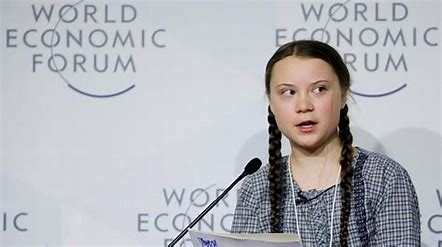
I give thanks for Claudette Colvin, a 15-year-old who became a major player in the civil rights movement by refusing to give her seat to a causcasian rider. This was 9 months before Rosa Parks did the same thing. She was a spark that caught hold. Claudette helped to bring liberation to our world.
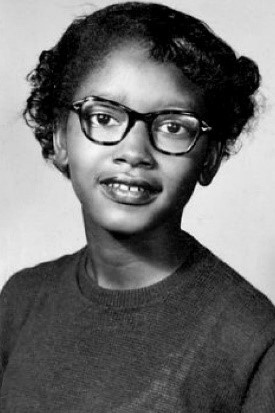
I give thanks for Ruby Bridges. An American civil rights activist who became the first black child to enter a previously all-white elementary school in Louisiana symbolically breaking the color bar for segregation in the south. Ruby helped to bring liberation to our world.
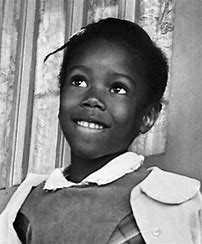
I give thanks for Iqbal Masih, a Pakistani boy who escaped child slaver at 10 years old and became a leader in the movement to put end to child slavery once and for all. He helped over 3000 children escape bondage. Iqbal was executed at age 12, but he did not die in vain. He helped to bring liberation to thousands of children around the world.
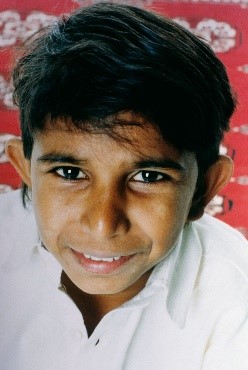
I give thanks for Anne Frank from Germany. Anne Frank wrote The Diary of Anne Frank . It became an international best-seller and helped give a young person’s perspective on the holocaust statistics, in which 6 million Jews and millions of other people were killed. Anne Frank brought liberation to our world.
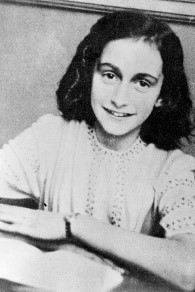
I given thanks for Louis Braille from France. Louis lost his sight at only three years old in an accident. He invented the Braille system, still largely unchanged, at age 12 bringing liberation to the visually impaired.
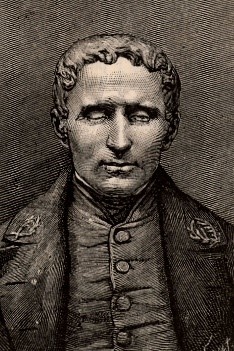
I given thanks for Jazz Jennings. Jazz Jennings at the age of 5 years old made headlines as the one of the youngest people to identify publicly as transgender. She has used her platform to help with trans rights and founded Transkids Purple Rainbow Foundation. Jazz is bringing liberation to our world.

I give thanks for teenager Brandt Jean. Have you watched the news this week about a white Dallas police officer who took the life of an unarmed black neighbor in his own living room? She received a 10-year sentence in prison. Those present were stunned to discover forgiveness and compassion in the courtroom from the deceased’s young brother, Brandt Jean, a teenager. The judge was so moved that she hugged the defendant, too. Brandt Jean brings the gift of liberation through forgiveness (show video).
And Jesus said, “If you want to inherit the Kingdom / the Kindom of God, you must become like a child.” Amen.
